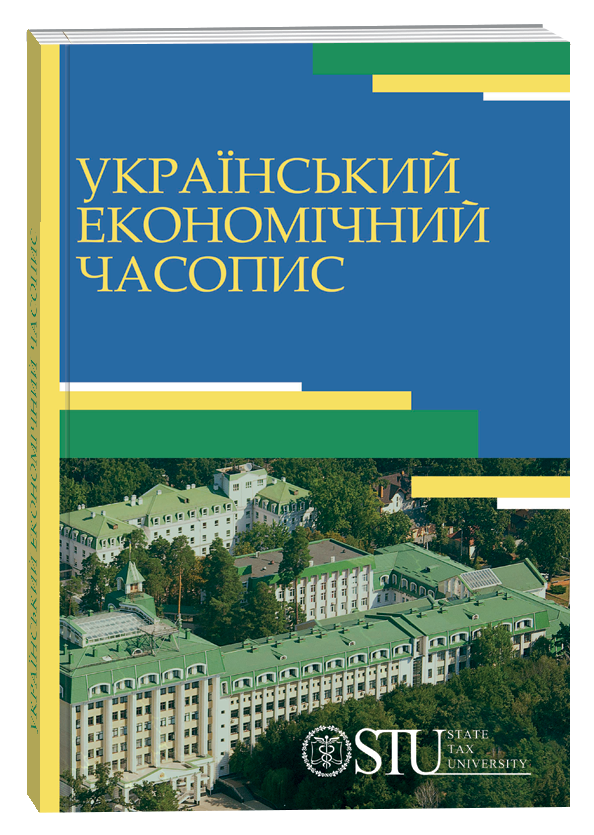FROM DOUBLE TAXATION ELIMINATION TO HARMFUL TAX COMPETITION: HISTORICAL CONTEXT AND FURTHER DEVELOPMENT
DOI:
https://doi.org/10.32782/2786-8273/2024-6-13Keywords:
tax sovereignty, double taxation, League of Nations, OECD, harmonization of the international tax system, “race to the bottom”, tax competition, BEPSAbstract
Introduction. Historically, tax policies and regulations have been designed to address internal economic and social issues. Tax structures and rates were determined based on the requirements for access to public goods and the objectives of distributing and redistributing state funds within a specific country. In a context of limited capital mobility, the interaction between national tax systems was also restricted. Tax system development and design remained sovereign matters for each individual state, affecting processes exclusively within that state. The rapid expansion of international business during the colonial expansion of the 19th and early 20th centuries introduced significant challenges related to double taxation. The swift geographical spread of economic activities created uncertainties regarding double taxation. This was identified as a substantial barrier to cross-border investments and trade. Purpose. The purpose of this article is to analyze the historical context in which the principles of eliminating double taxation emerged, identify the threats to tax sovereignty in the context of high capital mobility, and provide a critical review of the comprehensive harmonization of the international tax landscape. Methods. Within the framework of the research, both general scientific and special research methods were used, namely: historical method, description, comparison, induction, synthesis, analysis, logical reasoning and case study. Results. Before World War I, efforts to combat double taxation in Europe were addressed at the national level by individual states. Following World War I, the League of Nations assumed a pivotal role in developing methodological foundations for the elimination of double taxation. The League of Nations' reports significantly influenced the modern structure of the international tax system. Abandoning the notion of harmonizing international tax legislation, the reports recommended the formation of numerous bilateral agreements. Established after World War II to manage aid under the Marshall Plan, the Organisation for European Economic Co-operation replaced the League of Nations as the primary multilateral political forum for discussing international tax matters. In the process of post-war reconstruction, the elimination of double taxation played a significant role, leading to the emergence of the socio-economic phenomenon known as the “race to the bottom”. This phenomenon subsequently evolved into harmful tax competition, jeopardizing the sovereignty of national tax revenues in the context of high capital mobility. Concerns among researchers, international organizations, and governments about the impact of tax-motivated competition between jurisdictions on the sovereignty of tax revenues led to the development of the BEPS Action Plan which comprises 15 Actions aimed at curbing the negative effects of harmful tax practices. However, as the BEPS Action Plan evolved, it increasingly began to lean towards the global harmonization of the international tax system. Meanwhile, addressing the imperfections of other BEPS Actions, such as the practical application of the principal purpose test, artificial avoidance of permanent establishment status, as well as specific aspects of transfer pricing becomes secondary. Conclusion. The author has examined the evolution of the international tax system, from the classical conflicts of double taxation, which served as a deterrent to the expansion of international economic activities and investments, to the emergence of mechanisms for double non-taxation, considering the inconsistency of the international tax landscape in the context of harmful tax competition. Initially, the creation of mechanisms to address double taxation and non-taxation was grounded in the principles of practicality and the sovereignty of national tax systems. However, there is now a discernible trend towards comprehensive harmonization of the international tax system, which is an integral aspect of globalization. In this process, less attention is being devoted to the foundational Actions initially embedded in the BEPS Action Plan.
References
Addressing Base Erosion and Profit Shifting. (2013). OECD. DOI: https://doi.org/10.1787/9789264192744-en
Augustus, B. A. (1991). The modern corporation and private property. Transaction Publishers.
Avi-Yonah, R. S. (2000). Globalization, tax competition and the fiscal crisis of the welfare state. SSRN Electronic Journal. DOI: https://doi.org/10.2139/ssrn.208748.
Avi-Yonah, R. S., & Lahav, Y. (2011). The effective tax rate of the largest US and EU multinationals. SSRN Electronic Journal. DOI: https://doi.org/10.2139/ssrn.1949226
Bartelsman, E. J., & Beetsma, R. M. W. J. (2003). Why pay more? Corporate tax avoidance through transfer pricing in OECD countries. Journal of Public Economics, 87(9-10), 2225–2252. DOI: https://doi.org/10.1016/s0047-2727(02)00018-x
Coates, W. H. (1924). League of nations report on double taxation submitted to the financial committee by professors bruins, einaudi, seligman, and sir josiah stamp. Journal of the Royal Statistical Society, 87(1), 99. DOI: https://doi.org/10.2307/2341293
Davies, D. R. (1985). Principles of international double taxation relief. Sweet & Maxwell.
Draft double taxation convention on income and capital. (1963). OECD. DOI: https://doi.org/10.1787/9789264073241-en
Harmful tax competition. (1998). OECD. DOI: https://doi.org/10.1787/9789264162945-en
Nations, L. O. (1925). Double taxation and tax evasion.: Report and resolutions submitted by the technical experts to the financial committee of the league of nations.
Picciotto, S. (1992). International business taxation: A study in the internationalization of business regulation. Weidenfeld & Nicolson.
Rixen, T. (2011). From double tax avoidance to tax competition: Explaining the institutional trajectory of international tax governance. Review of International Political Economy, 18(2), 197–227. DOI: https://doi.org/10.1080/09692290.2010.481921.
Tax Revenue Buoyancy in OECD Countries. (б. д.). URL: https://www.oecd.org. https://www.oecd.org/ctp/revenue-statistics-2522770x.htm



